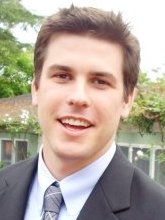 |
 |
|

Technical
Seminar |
 |
 |
|
|
|
Digitally-Assisted Analog Circuits for a 10 Gbps,
395 fJ/b Optical Receiver in 40 nm CMOS |
|
|
DATE/TIME
Friday, March 16, 2012 (10:00am to 11:00am) |
|
PLACE
AMD Fort Collins Campus (Fort
Collins, CO)
|
|
DIRECTIONS
|
|
From I-25, take Harmony Road Exit (Exit 265) westbound, and enter AMD
campus on right immediately following Harmony/Ziegler intersection.
AMD is located on the NW corner of Harmony Road and Ziegler Road.
Proceed to 3rd floor for escort to seminar auditorium. Non-AMD
employees: please arrive at 9:45am for security sign-in and escort.
|
|
COST
Free. As always, food &
drinks will be provided. |
|
RSVP
Send e-mail to
https://gomartin.net/sscs/2012/rsvp_2012_03_16.htm |
|
|
ABSTRACT |
|
This presentation is an extended encore of a
contributed paper delivered at the 2011 Asian Solid-State
Circuits Conference (A-SSCC) in Jeju, Korea. |
|
Digital “assist” circuits can improve the
efficiency of traditionally analog circuit blocks, especially as
technologies scale to the detriment of analog blocks. We apply some of
these techniques to a 10 Gbps optical reciever, and demonstrate 395 fJ/b
energy efficiency. Digital calibration blocks wrapped around a simple
analog core enabled offset compensation, TIA biasing, and DLL re-timing,
and cost negligible performance and power overhead. The assist circuits
cost around 40% area overhead. |
|
PRESENTATION SLIDES
pdf (IEEE copyright) |
|
REFERENCE
A-SSCC paper (IEEE copyright) |
|
|
PHILIP
AMBERG
(Oracle Labs, Redwood Shores, CA)
|
 |
Philip
Amberg received his BS Engineering degree from Harvey Mudd College,
Claremont, CA in 2008. After graduating, he joined the VLSI Research
Group at Sun Microsystems Laboratories, Menlo Park, CA, which is now
Oracle Labs. During this time, he enrolled in the MSEE program at
Stanford University and graduated in January 2012 with an emphasis in
analog and digital circuit design. At Sun/Oracle, he has worked with
chip-to-chip I/O technologies such as Proximity Communication and
optics. He has also experimented with low-power database processing for
large scale analytics. |
|
|
|
|
|
|